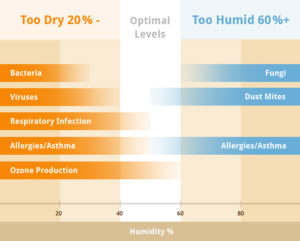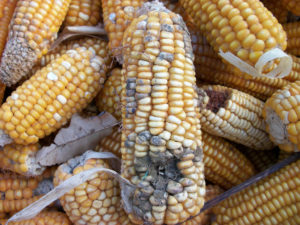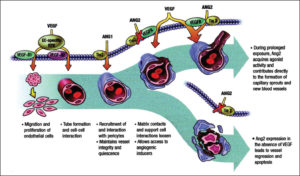Submitted by Aspergillus Administrator on 15 January 2010
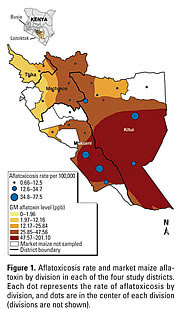 We have mentioned in earlier blogs the devastating effects that Aspergillus and its toxins can have on food crops. At best a crop contaminated with aflatoxin is sellable at a reduced price, at worse it is worthless.
We have mentioned in earlier blogs the devastating effects that Aspergillus and its toxins can have on food crops. At best a crop contaminated with aflatoxin is sellable at a reduced price, at worse it is worthless.
Some farmers are seeding their crops with strains of Aspergillus that do not produce aflatoxin and find that that is an effective way to reduce contamination, as the non-toxic strains can outgrown the toxic strains. That approach requires extra time, labour and expense of the farmer – how much better would it be if the plants themselves could be made resistant to contamination by aflatoxins?
It turns out that mutants of a family of genes present in most plants called LOX hold one of the keys to achieving this goal. This group identified LOX genes that when mutated allowed higher levels of aflatoxin contamination (LOX3) and suggests that this information could be used as part of the effort to produce strains of crops that are resistant to mycotoxin accumulation. It tells us that plants are not passive victims of mycotoxin contamination and can influence the outcome themselves – thus avoiding all of the extra work required by current strategies outlined above.
This recent review goes into the subject in much more detail and with a wider viewpoint taking in several gene mutations and more fungal pathogens. LOX gene activity may even mimic similar genes in the fungus that tell the fungus to sporulate and produce toxins, suggesting that the relationship between fungus and plant host is intimate and very complex.
Simplistically is is possible to speculate that growing crop strains that do not contain genes that turn on mycotoxin production will lead to far lower levels of toxins in the resultant harvest. Before we can do that we need to know what effect that will have on the plant and what other effects that might have – for example it might be that mycotoxins protect the plant or its seed from other infections? After all, the plant is only ‘interested’ in its own survival rather than providing food for us.
This research is still in its infancy but shows great potential for increasing the efficiency with which we can grow food free of toxins despite the best efforts of our fungal foes.
News archives
-
Title
Date

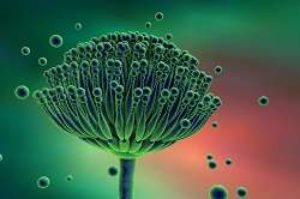


 ,
, 
